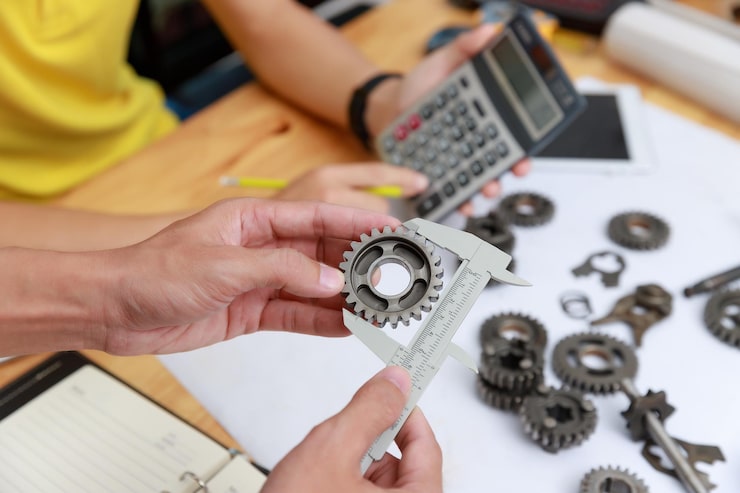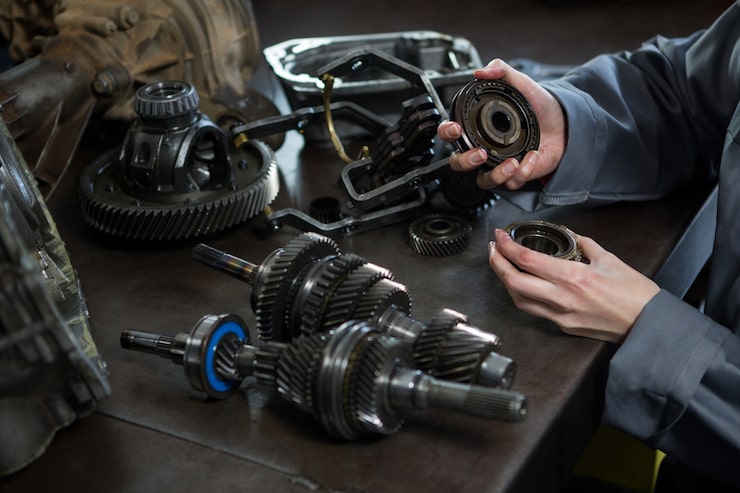Learn Mechanical Skills with Professional Training Across Pakistan
Mechanical engineering is the backbone of industries, manufacturing, and automation. Our mechanical courses provide practical knowledge, hands-on training, and industry-ready skills for students, graduates, and professionals.
Available in Peshawar, Islamabad, Lahore, Karachi, and other major cities, our programs combine DAE diplomas, technician-level training, and specialized mechanical workshops. Students gain confidence and real-world expertise under expert guidance.

Types of Mechanical Courses Offered
- Mechanical Technician Course
Beginner program covering machinery, safety, and design; practical skills for entry-level technicians with industrial tools. - Diploma in Mechanical Engineering (DAE)
Three-year diploma covering systems, thermodynamics, CAD, maintenance; includes labs and workshops, recognized for global opportunities. - Advanced Mechanical Training
Covers automation, robotics, troubleshooting, industrial projects; ideal for engineers upgrading skills through simulations and projects. - CAD and Mechanical Design Course
Training in 2D/3D CAD, simulation, and drafting; prepares students for design, prototyping, and manufacturing careers. - Industrial Maintenance & Machinery Course
Focuses on machine maintenance, hydraulics, pneumatics; practical projects with equipment, preparing for manufacturing and plant maintenance roles.
Who Should Enroll?
Our mechanical courses are ideal for:
- Students, graduates, and working professionals seeking technical careers.
- Entrepreneurs and technicians wanting industrial skills.
- Anyone interested in mechanical engineering, automation, and design.
- Learners in Peshawar, Islamabad, Lahore, Karachi, and across Pakistan.
No prior experience is needed. Courses start from fundamentals and gradually build advanced knowledge.
Career Paths After Mechanical Courses
Completing our courses opens multiple career options:
- Mechanical Technician in manufacturing or maintenance
- CAD Designer and Mechanical Drafting Specialist
- Industrial Automation or Robotics Engineer
- Maintenance Supervisor in factories or plants
- Entrepreneur in mechanical service, repair, or fabrication

Benefits of Learning Mechanical Courses
High-Demand Skills:
Gain knowledge in CAD, machinery, automation, and industrial systems.
Career Opportunities:
Work as mechanical engineers, technicians, designers, or maintenance professionals.
Hands-On Learning:
Real-world projects and workshops prepare students for professional tasks.
Entrepreneurship Potential:
Start your own mechanical service, workshop, or design studio.
Flexible Training:
Online and in-person programs across Pakistan, fitting student or professional schedules.
Why Choose Our Mechanical Courses?
Our programs are designed to provide industry-focused learning and career advancement.
- Experienced Instructors: Learn from certified mechanical engineers with real-world experience.
- Comprehensive Curriculum: Covers CAD design, thermodynamics, fluid mechanics, and industrial machinery.
- Hands-On Training: Workshops and lab exercises let students practice real-world tasks safely.
- Flexible Learning Options: Courses available across Pakistan and online for students and professionals.
- Recognized Certification: Certificates and diplomas improve employability locally and internationally.
- Career Support: Guidance on resume building, interviews, and job placement opportunities.


Frequently Asked Questions (FAQs)
Are online medical courses available in Pakistan?
Yes, we offer online medical courses that include live sessions, recorded lectures, and interactive materials.
Do I need prior medical knowledge to enroll?
No, our foundation-level courses are beginner-friendly and start from the basics.
Are certificates recognized by hospitals?
Yes, all certifications are recognized and accepted by hospitals, clinics, and healthcare organizations in Pakistan.
How long do the medical courses take?
Course duration varies—short diplomas last 6–12 months, while advanced certifications may extend up to 2 years.
Do you offer practical training along with theory?
Absolutely! Our programs combine classroom learning with lab sessions, clinical practice, and real-world case studies.

